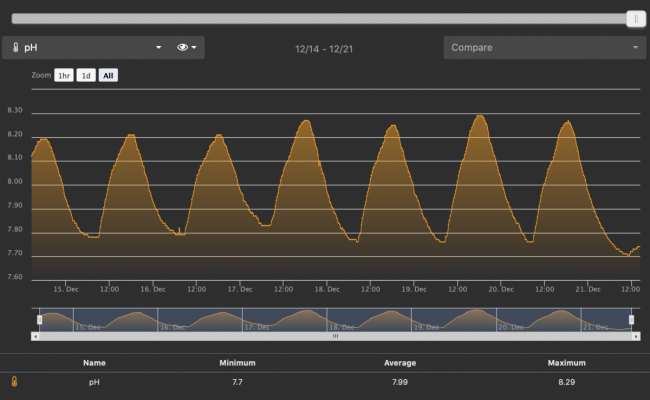- Joined
- May 22, 2016
- Messages
- 6,535
- Reaction score
- 10,082
@jccaclimber I think @Lasse has used a similar rig but without the bubbling. Just a large amount of tank water, small airspace above, and CO2 sensor in the small sealed airspace above the water. It'd be slow equilibrium, I think, but maybe Lasse can comment on how well it worked.


















